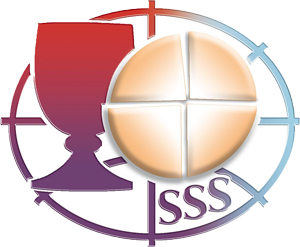LITE Scriptural Program
Session 1 – Eucharist: God’s Love as Covenant in Jesus Christ
The origin of the Eucharist is found in the very origin of the world. In the beginning God established a covenant relationship of intimacy and union with the human family. That relation had been broken by sin time and again. Yet, God continued to reestablish the covenant and heal the people: with Noah, the flood and rainbow; Abraham, a chosen people; Moses, the Passover exodus, the law, and the Promised Land. The prophets called the people to greater loyalty, to write the covenant on their hearts. It is only in Jesus that the new covenant is established with the cup of his blood poured out from the cross for the forgiveness of our sins. It is a new and everlasting covenant.
Session 2 – Eucharist: God’s Love as Sacrifice in Jesus Christ
The covenant with God was often sealed with a sacrificial offering and meal. The temple was the place of sacrifice: to remember the Passover, to pay ransom for the first born, and to make atonement for sins. However, God was not pleased with these sacrifices because they failed to bring about a change in the life of the people. God desired a more authentic sacrifice of true worship that honored God in doing what was right, feeding the hungry, freeing the oppressed. Jesus gives his life out of love for the world to be the sacrificial offering pleasing to God. The Church continues to participate in this sacrifice of praise to God in the eucharistic meal.
Session 3 – Eucharist: God’s Love as Memorial in Jesus Christ
The story of salvation is found in the collective memory of God’s people as it is celebrated and passed down from generation to generation. The dynamic of this memorial consists of praising God for God’s saving deeds in leading the people from oppression to freedom. This is done, in part, by remembering and retelling the event of the Passover with a meal in which the people actually participated in the ongoing work of God freeing them from oppression. Jesus presented himself as the Passover lamb who would take away the sin of the world. We hold sacred and participate in the memorial of his death and resurrection in which we are liberated from sin and death.
Session 4 – Eucharist: God’s Love as Praise and Blessing (Berakah) in Jesus Christ
In the memorial meal the people would be aware of God being present at table with them and would acknowledge God’s presence with prayers of blessings, “berakah,” for all the gifts they had received. The Eucharist is a berakah which expresses gratitude for the good things of the earth now being shared in table fellowship in rendering praise and glory to God.
Session 5 – Eucharist: God’s Love as Prophetic Service in Jesus Christ
The prophets listened to the word of God and called the people to live according to God’s will. Our Eucharist is the place where we gather to hear and ponder the word of God for the world today. Drawing from the words of the prophet Micah (Mi 6:8), we are anointed as a eucharistic people to act justly, to love tenderly and to walk humbly with God.



